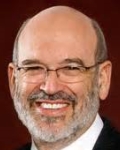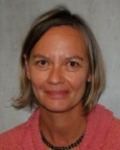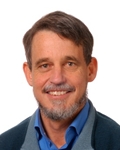 The Canterbury Health in All Policies Partnership (CHIAPP) are planning a one day Health in All Policies (HiAP) in New Zealand conference in Christchurch on Friday 1st May 2015. The conference acknowledges and celebrates ten years of Health in All Policies (HiAP) work in New Zealand.
The Canterbury Health in All Policies Partnership (CHIAPP) are planning a one day Health in All Policies (HiAP) in New Zealand conference in Christchurch on Friday 1st May 2015. The conference acknowledges and celebrates ten years of Health in All Policies (HiAP) work in New Zealand.
The Conference will 'take the pulse' of HiAP in New Zealand and ask the question 'where to next?'
The conference will be at the Tea House at Riccarton Racecourse. The conference fee is $100 - you will be invoiced for this once registered.
You should attend this conference if your work has an impact on community health and wellbeing. You may be a policy analyst, a government decisionmaker, or a community worker implementing a specific programme.
Download the programme for the HiAP NZ Conference [PDF].
Successful presentations will demonstrate why a project is a Health in All Policies project and what health issue it is intending to address. The following two documents were provided to assist submitters:
This conference will look at Health in All Policies work at national, regional and local levels in New Zealand, as well as internationally. You will leave with a new understanding of how important your own work is and ideas to strengthen and increase its impact.
The conference is intended to provide an opportunity for all HiAP practitioners to showcase their work. Many projects that result in healthy outcomes or healthy public policy are implicitly HiAP projects. If you have a project that has had or is having these positive results, we want to hear about it.
Keynote speakers at the HiAP NZ Conference
 Professor Sir Peter Gluckman is the Prime Minister’s Chief Science Advisor and the Co-chair of the World Heath Organisation Commission on Ending Childhood Obesity. He was the founding Director of the Liggins Institute and is one of New Zealand’s best-known scientists. He is internationally respected for his work promoting the use of evidence in policy formation and the translation of scientific knowledge into better social, economic, and environmental outcomes.
Professor Sir Peter Gluckman is the Prime Minister’s Chief Science Advisor and the Co-chair of the World Heath Organisation Commission on Ending Childhood Obesity. He was the founding Director of the Liggins Institute and is one of New Zealand’s best-known scientists. He is internationally respected for his work promoting the use of evidence in policy formation and the translation of scientific knowledge into better social, economic, and environmental outcomes.
Professor Sir Peter is a Fellow of The Royal Society (London), the Commonwealth’s most prestigious scientific organisation. He is the only New Zealander elected to the Institute of Medicine of the National Academies of Science (USA) and the Academy of Medical Sciences of Great Britain. In 2009 he became a Knight of the New Zealand Order of Merit for services to medicine. In 2001 he received New Zealand’s top science award, the Rutherford Medal.
 Henare Ngaera O’Keefe was born and raised in Ruatoria and is a Flaxmere Ward Councillor for the Hastings District Council and Justice of the Peace. Henare spent 23 years working at Tomoana Freezing Works in a variety of roles – from labourer to leading hand. Following the closure of the works, Henare became actively involved in community work, including as a facilitator and social welfare manager at Tomoana Resource Centre – establishing a food bank and working with over 800 former colleagues to help them find alternative work – and fostering over 200 children with his wife Pam, as well as raising their own four children.
Henare Ngaera O’Keefe was born and raised in Ruatoria and is a Flaxmere Ward Councillor for the Hastings District Council and Justice of the Peace. Henare spent 23 years working at Tomoana Freezing Works in a variety of roles – from labourer to leading hand. Following the closure of the works, Henare became actively involved in community work, including as a facilitator and social welfare manager at Tomoana Resource Centre – establishing a food bank and working with over 800 former colleagues to help them find alternative work – and fostering over 200 children with his wife Pam, as well as raising their own four children.
Henare has worked a lot with young people, including through youth justice and family violence programmes, and as an ambassador for Books in Homes and the Yellow Ribbon programme (to prevent youth suicide). Henare was awarded New Zealand’s community hero for 2012. Henare’s governance experience ranges from marae management to ministerial appointments.
 Ana Apatu is of Ngāti Kahungunu descent from the Ngāti Hine Manu hapū. She currently works as Chief Executive U-Turn Trust, a charitable trust working with the community of Flaxmere Hawke’s Bay. Ana has a wealth of experience in large national and public health organisations.
Ana Apatu is of Ngāti Kahungunu descent from the Ngāti Hine Manu hapū. She currently works as Chief Executive U-Turn Trust, a charitable trust working with the community of Flaxmere Hawke’s Bay. Ana has a wealth of experience in large national and public health organisations.
She is passionate about developing strategies to improve health particularly with Māori, Pacific and low income families. Ana has a background as a Registered Nurse and has a Bachelor of Nursing and a GradDip in Public Health.
 Professor Paul Dalziel has been Professor of Economics at Lincoln University since 2002 and is Deputy Director of the university’s Agribusiness and Economics Research Unit. His research focuses on economic and social policy, with a particular interest in regional economic development.
Professor Paul Dalziel has been Professor of Economics at Lincoln University since 2002 and is Deputy Director of the university’s Agribusiness and Economics Research Unit. His research focuses on economic and social policy, with a particular interest in regional economic development.
Paul has published more than 100 refereed articles and book chapters. He is the co-author with Caroline Saunders of Wellbeing Economics: Future Directions for New Zealand (Bridget Williams Books 2014).
 Associate Professor Susan Morton is the Director of the Centre for Longitudinal Research at the University of Auckland. This cross-faculty centre is the home of the contemporary longitudinal study – Growing Up in New Zealand, which she has been the Principal Investigator of since its inception in 2005.
Associate Professor Susan Morton is the Director of the Centre for Longitudinal Research at the University of Auckland. This cross-faculty centre is the home of the contemporary longitudinal study – Growing Up in New Zealand, which she has been the Principal Investigator of since its inception in 2005.
Susan is a Public Health Physician and an expert in perinatal epidemiology and translational research and economic modeling of life course outcomes.
 Robert Quigley is Director of Quigley and Watts Ltd, a Wellington based company of 7 staff that supports individuals and organisations to create thriving communities. Robert has worked at the Ministry of Health in New Zealand, the Health Development Agency in England and the World Health Organization in Geneva. Robert’s current role is to support agencies when developing complex policies and plans that may affect communities. He is also an experienced researcher and facilitator.
Robert Quigley is Director of Quigley and Watts Ltd, a Wellington based company of 7 staff that supports individuals and organisations to create thriving communities. Robert has worked at the Ministry of Health in New Zealand, the Health Development Agency in England and the World Health Organization in Geneva. Robert’s current role is to support agencies when developing complex policies and plans that may affect communities. He is also an experienced researcher and facilitator.
Robert is an experienced HIA and HiAP practitioner, strategist, trainer and author. Recently, Robert developed and delivered the World Health Organization’s first international course on Health in All Policies (delivered to 35 nationalities in Adelaide). He has worked within and across multiple sectors including local and regional government, transport, energy and the social sectors. He is the lead author on the joint International Association of Impact Assessment and World Health Organization ‘Principles and Practice of HIA’, 2006.
 Hon Lianne Dalziel (LLB) was elected as the Mayor of Christchurch in October 2013, after serving for 23 years in the New Zealand Parliament, the last four terms as the Member of Parliament for Christchurch East. Lianne played an important role in ensuring that her constituents had access to accurate information, as well as ensuring that their concerns were communicated to decision-makers in the aftermath of the 2010/11 Canterbury Earthquake Sequence.
Hon Lianne Dalziel (LLB) was elected as the Mayor of Christchurch in October 2013, after serving for 23 years in the New Zealand Parliament, the last four terms as the Member of Parliament for Christchurch East. Lianne played an important role in ensuring that her constituents had access to accurate information, as well as ensuring that their concerns were communicated to decision-makers in the aftermath of the 2010/11 Canterbury Earthquake Sequence.
Lianne was invited to join the UNISDR’s Parliamentary Advisory Group on Disaster Risk Reduction in 2012. With this background, Lianne has become a champion of resilience, with Christchurch selected as one of the first tranche of cities to participate in the 100 Resilient City Network pioneered by the Rockefeller Foundation. Since becoming Mayor, Lianne has presented at a number of conferences including the 2014 NZ Emergency Management and Business Resilience Summit, and the 2015 United Nations 3rd World Conference on Disaster Risk Reduction.
About Health in All Policies
Health in All Policies (HiAP) is a way of working that builds on the healthy public policy area. It is an approach that supports and encourages all sectors to consider their policies’ health impacts and to work together to improve communities health and wellbeing. This collaborative approach acknowledges that each stakeholder has different drivers but have shared goals.
Recently global governance agencies such as the World Health Organization, the European Union and the United Nations have moved to make Health in All Policies governance concepts front and centre of their work, particularly in the area of non-communicable diseases.
The criteria for HiAP projects and further information can be found on the Community and Public Health website.